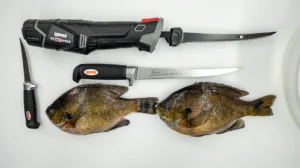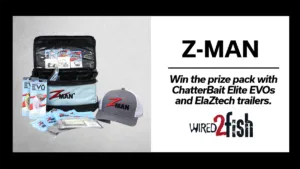Buying a new boat can be an expensive proposition. It is very important to protect that investment and part of the equation is using quality lubrication products. Properly formulated and tested products are a must to insure that your engine is cared for and will last as long as you own your boat. Fuel is expensive and is one of the most expensive items a boat owner is up against but cutting corners with your boats internal lubrication is not the remedy to save money.
We recently had the opportunity to sit down and talk to Lucas Oil Technical Director Mark Negast regarding Lucas Marine Products and questions we have received from readers on their use.
Below are the questions and highlighted responses from Negast:
Will using Lucas Marine Oil void new outboard engine warranty?
We have four products designed for outboard motors. One is our Land & Sea TC ®-W3. This is for 2-stroke applications. The other three are our four stroke outboard motor oils. They come in SAE 10W-30, SAE 10W-40 and SAE 25W-40 grades. All of our products are NMMA ® certified. So, if the OEM calls out for NMMA ® certified TC ®-W3 for 2-stroke engines and NMMA ® FC-W or FC-W (Catalyst Compatible) for four stroke outboards then absolutely our productswill not void new engine warranties.
What manufacture rating must marine oil have?
NMMA ® TC ®-W3 for 2-stroke outboards, and either NMMA ® FC-W or FC-W (Catalyst Compatible) for 4-stroke outboards.
Does Lucas meet or exceed this rating?
Yes, we meet or exceed these ratings. We also have recently been approved as the OEM factory fill oil for ILMOR High Performance V-10 with our mineral based SAE 20W-50 Marine Oil.
What function is most important in formulation of marine oil? Heat prevention, lubrication, other?
In 2-stroke engines it is lubrication, prevention of ring sticking, reduced emissions, heat prevention and improved performance. This is especially important since the oil fuel mixture is what provides the lubrication protection). In four stroke outboard engines lubrication and removal of heat are the biggest issues as well as rust and corrosion protection. NMMA ® certified four stroke outboard engine oils contain rust and corrosion inhibitors not present in standard automotive engine oils.
How important is Ethanol treatment for today’s outboards? What does it do?
Ethanol in fuel is not good for outboards, especially since the EPA approved E-15. The traditional grade has been E-10, but if at all possible I recommend trying to use ethanol free gasoline if at all possible. When ethanol is in fuel especially in the presence of water, the water, ethanol and gasoline separate into phases and this creates two problems. One problem is that the separation creates a condition where rust and corrosion can occur quickly. Secondly, the free water can affect the performance of the engine and the phase separation can create deposits in the fuel delivery system. Ethanol fuel treatments typically address the rust and corrosion issue by providing effective rust inhibitors into the products. Many companies claim water removal but that is difficult to do since the only way to do that is to add IPA (isopropyl alcohol) or more E-10 fuel so that the water is no longer saturated in the fuel. Some companies claim that they use emulsifiers to fix phase separation, but that is only for small amounts of water and their effectiveness is always in question.
What determines the best marine oil and what makes it the best?
First of all you want something that is NMMA ® certified. That means that the products have gone through rigorous testing to be able to make the performance claims on the bottles. All marine oils designed to meet NMMA ® performance are not all formulated the same. There are a lot of additive companies out there that sell these additives. Some have more data than others and perform better than others. It is really the choice of the finished product manufacturer. We happen to use the highest quality additives and base oils available today to differentiate our products from others.




![[VIDEO] How to Install the Garmin Force Pro Trolling Motor](https://www.wired2fish.com/wp-content/uploads/2025/06/trolling-motor-install-300x169.webp)











